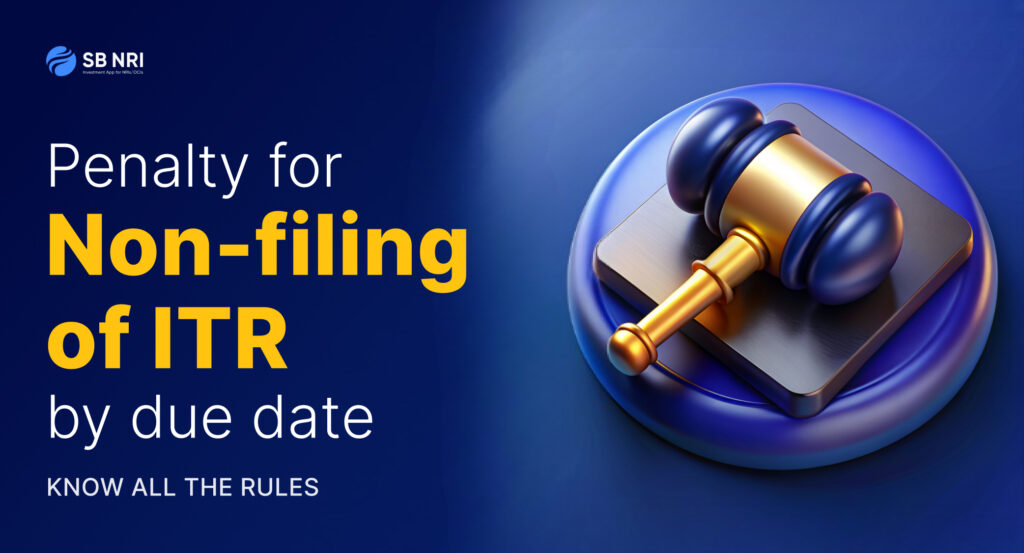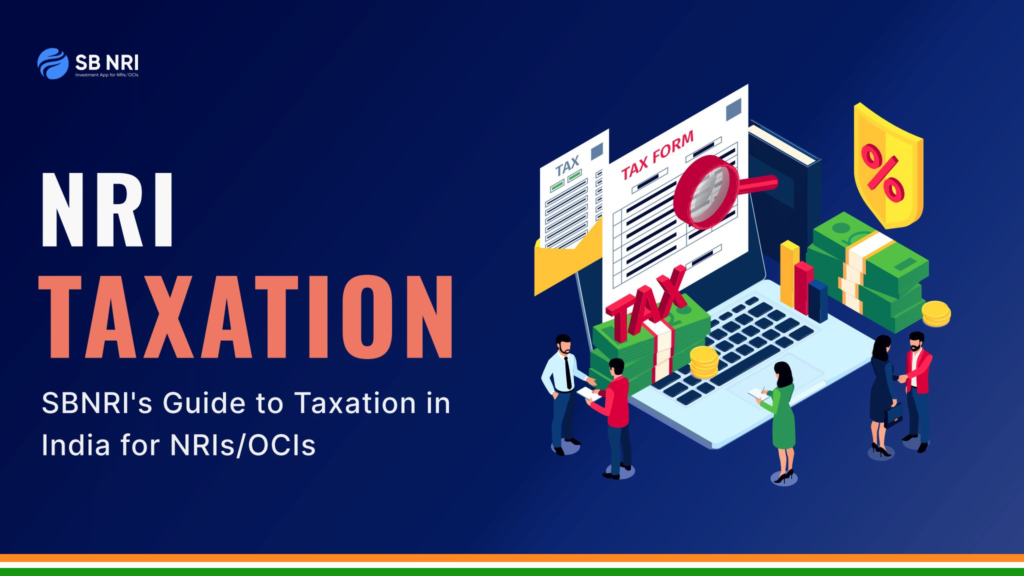
Filing your Income Tax Return (ITR) is a crucial responsibility for every taxpayer. Not only does it ensure compliance with tax laws, but it also helps you claim refunds and avoid legal troubles. However, failing to file your ITR by the due date can result in penalties and other consequences. In this blog, we will explore the late fee and penalty for non-filing of ITR by the due date and the rules you need to be aware of.
Click on the button below to file your ITR in a hassle-free way.
When is the Last Date or Due Date to fill ITR?
The last date or due date to fill your Income Tax Return(ITR) in India is July 31st for individuals, Non-Resident Indians (NRI) or Overseas Citizen of India (OCI), and HUFs. With the announcement of new tax regimes, there are two tax regimes you can choose from, new tax regime and old tax regime. Any individual, NRI/OCI, or HUF needs to select the right tax regime as per their suitability while filing an ITR.
However, it is also to be noted that from this year onwards, the New Tax regime would be the default tax regime for ITR filing unless the assessee selected another regime. To guarantee your option is recorded and to avoid penalties, don’t forget to file by July 31st. If you do not file ITR by due date then you will be liable for penalty for non-filing of ITR.
Also read: ITR Filing for NRIs AY 2024-25: Step-by-Step ITR Filing Process
Who should file ITR?
If an individual’s earnings are above Rs. 3 lakhs in the new regime for FY 2023–2024, those under 60 years of age are required to file an Income Tax Return (ITR). The price limit stays at Rs. 3 lakhs for anyone over 60 years of age. This new limit, which has been increased from Rs. 2.5 lakhs to Rs. 3 lakhs in Budget 2023, applies to ITR filings for the financial years 2023–2024.
NRI Income Tax Slab Rates for AY 2024-25 (FY 2023-24) – New Tax Regime & Old Tax Regime
| Income Tax Slab | Old Regime Slab Rates for FY 23-24 (AY 24-25) |
|---|---|
| Up to Rs. 2.50 lakh | Nil |
| Rs. 2,50,000 -Rs. 5,00,000 | 5% |
| Above Rs. 5 lakh to Rs. 6 lakh | Rs. 12,500 + 20% |
| Above Rs. 6 lakh to Rs. 7.50 lakh | Rs. 12,500 + 20% |
| Rs. 7.50,000 to Rs. 9,00,000 | Rs. 12,500 + 20% |
| Rs. 9,00,000 to Rs. 10,00,000 | Rs. 12,500 + 20% |
| Rs. 10,00,000-Rs. 12,00,000 | Rs. 1,12,500 + 30% |
| Rs. 12,00,000-Rs. 12,50,000 | Rs. 1,12,500 + 30% |
| Rs. 12,50,000-Rs. 15,00,000 | Rs. 1,12,500 + 30% |
| Above Rs. 15,00,000 | Rs. 1,12,500 + 30% |
| Income Tax Slab | New Regime Slab Rates for FY 23-24 (AY 24-25) |
|---|---|
| Up to Rs. 3 lakh | Nil |
| Rs. 3,00,000 -Rs. 6,00,000 | 5% (Rebate u/s 87A available) |
| Rs. 6,00,001 lakh to Rs. 9,00,000 | 10% (Rebate u/s 87A available for taxable income up to 7 lacs) |
| Rs. 9,00,001 to Rs. 12,00,000 | 15% |
| Rs. 12,00,001 to Rs. 15,00,000 | 20% |
| Above Rs 15,00,000 | 30% |
What is the Penalty for Non-Filing of ITR by the Due Date?
You can still file a belated Income Tax Return (ITR) in India by December 31 of the same fiscal year, even if you miss the July 31 deadline. You will have to pay the penalty under Section 234F for filing beyond the deadline. If you file after the deadline but before December 31st, there is a maximum penalty of Rs 5,000. The maximum fine for small taxpayers is lowered to Rs 1,000 if their total income is less than Rs 5 lakh. There is no penalty for filing after the deadline if your entire income is less than the basic deduction amount.
It’s critical to file your ITR on time to avoid these fines as well as extra costs including losing interest on refunds, having trouble getting a loan or visa, and being investigated by tax officials. The government gives taxpayers a four-month window, from April 1st to July 31st, every year, which is seen as plenty of time to file their taxes. It is therefore advised to file within this window to ensure compliance and avoid costly penalties.
Also read: 5 Tips for NRIs Filing Income Tax Returns in India
What is a Belated Return?
When a person files their income tax return after the first deadline, it is known as a belated return. The deadline for most people is July 31st of each year. They have until December 31st of the same year to file their return if they miss this deadline. Their first deadline is September 30th, but they also have until December 31st to file late if their income requires an audit. If you file your taxes after these dates but before the end of the fiscal year, it’s known as a “belated return.” It is submitted in accordance with the Income Tax Act section 139(4). Penalties and further interest on the taxes due may result from filing after the deadline. To prevent extra fees, it is therefore important to file your return on time.
Also read: Types of ITR forms for NRIs
What are the charges for Belated ITR return?
Filing a belated income tax return can result in penalties and disadvantages. Here is a list of penalties and late fees you need to pay:
- Interest Penalties: Interest under Sections 234A, 234B, and 234C will be charged, increasing your tax liability.
- Late Fees: A late fee under Section 234F will be charged :
- No fee will be charged if your gross total income is up to Rs. 2.5 lakh.
- Rs. 1,000 if your income is between Rs. 2.5 lakh-Rs. 5 lakh.
- Rs. 5,000 if your income is more than Rs. 5 lakh.
- Limitations on Loss Carry Forward: You are not allowed to use investment or company losses as a way of reducing earnings in years to come. Losses from real estate, on the other hand, are not taxed and can be carried forward even in cases of late returns.
- Deductions/Exemptions Disallowed: Certain tax benefits under Sections 10A, 10B, 80-IA, 80-IB, 80-IC, 80-ID, and 80-IE are only available if the return is paid on time. Filing late means losing these benefits, which could increase your tax burden.
Submitting a late return can result in interest and late fees, prevent you from claiming certain allowances and expenses, and limit how much of your losses you can carry over, all of which might raise your overall tax burden.
Also read: Getting ITR Notice as NRI/OCI? Here’s what you need to know
Why fill ITR in India?
There are several important reasons why you should fill an ITR. Below mentioned are some of the major reasons:
- Easier Loan Processing: When you are applying for a home loan or any other loan, you are often required to give proof of income. Providing your ITR for the past two to three years makes it a simpler process and improves your chances of getting a loan.
- Carry Forward Losses: If you have faced any loss in capital gains or business profits, filing your ITR allows you to carry forward these losses to balance in future gains, potentially reducing your tax liability in coming years.
- Claim TDS Refunds: If tax has been collected from your income at source (TDS), submitting your ITR allows you to get a refund if the entire amount of your tax bill is less than the amount of TDS. This guarantees that any excess tax you pay will be refunded.
- Visa and Credit Card Applications: When applying for a visa or a credit card, you need to provide income proof. ITRs from the last three years are often required to verify your financial stability, mostly for travel to countries like the USA, Canada, or Europe.
Also read: Can NRIs file ITR 1 in India? Types of ITR forms for NRIs
Calculate your TDS Refund with SBNRI’s TDS Refund Calculator
A TDS refund is the process of reclaiming the excess tax deducted at source by the payer if the actual tax liability of the taxpayer is lower than the TDS deducted. This situation typically arises when the income tax calculated on the total income is less than the TDS already deducted. To claim a TDS refund, taxpayers need to file an income tax return (ITR). The Income Tax Department processes the ITR and verifies the details. If the tax department finds that the TDS paid is more than the actual tax liability, the excess amount is refunded to the taxpayer.
You can easily find out how much tax refund you can get by calculating your TDS Refund from this TDS Refund Calculator.
Access SBNRI’s Exclusive NRI Taxation Guide

NRIs and OCIs can now access SBNRI’s exclusive NRI Taxation Guide covering in-depth information about DTAA, Gift Tax, Rental Income Tax, ITR Filing, Types of ITR Forms for NRIs, Capital Gain Tax, Income Tax, and more. The report will help you understand India taxation on mutual funds, other asset classes and how you can comply with the regulations.
Access NRI Taxation report here
Wrapping Up
It’s important to file your income tax return (ITR) on time. It supports your loan applications, loss carryovers, and TDS refund requests. Also, it helps the country develop and is often required when applying for credit cards and visas. July 31, 2024, is the deadline for submitting ITRs for the 2023–2024 fiscal year. You may file a late or corrected return by December 31, 2024, but there can be a penalty if you miss this deadline. To avoid penalties and to take advantage of all the benefits, it is therefore best to file your ITR on time.
Looking for NRI ITR Filing? Connect with SBNRI NRI Tax Expert CA Today!

At SBNRI, we have simplified ITR filing for NRIs/OCIs through a smooth digital journey. Be it Basic Filing, Advanced Filing (includes Capital Gain, etc.), or Premium Filing (Foreign Income), we can help you assess the right computation and lower your tax liability.
“We’ve helped over 500+ NRIs/OCIs file ITR returns and more than 25,000+ across other taxation services last financial year and we’d love to help you out too”
You can download SBNRI App or connect with NRI Tax Expert team directly via the button below.
FAQs
What happens if I fill ITR 1 instead of ITR 2?
If you choose the wrong ITR form, the filed return will be treated as defective and you will need to file a revised ITR using the correct form.
What is the penalty for not filing an ITR within the due date?
If you file your Income Tax Return (ITR) late, you will have to pay a penalty. The maximum penalty is Rs 5,000. This penalty applies if you file your ITR after the due date of 31st July 2024 but before 31st December 2024.
Who is eligible for ITR-1?
ITR 1 Form is filed by:
- Taxpayers.
- Individuals who are a Resident with a total Income of up to INR 50 lakhs when the Income is from Salaries.
- One House Property
- Other Sources; Interest, dividend, etc.
- Agricultural Income up to INR 5 thousand.
Can I file an ITR after 31 December?
No, the due date for filing the Income Tax Return (ITR) for the financial year 2023-24 (assessment year 2024-25) is July 31, 2024. If you miss this deadline, you can still file a belated or revised return by December 31, 2024.
Who is not eligible to fill ITR-2:
- Any individual or HUF having income from business or profession
- Individuals who are eligible to fill out the ITR-1 form (Sahaj)
Can a salaried person file ITR 1?
ITR-1 may be filed by someone who earns money from a job, a home, or other outlets. An NRI is unable to file an ITR-1 and ITRs may be filed using Form 16 by salaried taxpayers.
What is ITR-3?
The ITR-3 is applicable for individuals who have income from profits and gains from business or any profession. You can call it a master Form, as this is the one form where an individual can report all the possible incomes.
How can I avoid notice of income tax department?
It is advised that you should file your returns and make sure that the details provided to the IT department are correct. Also make sure that if you perform any financial transactions in India that need to be reported, do file a return to avoid any notices.



